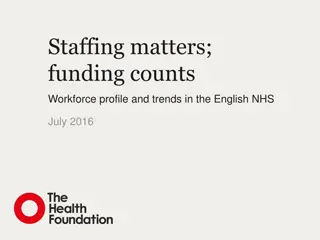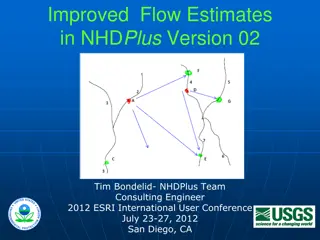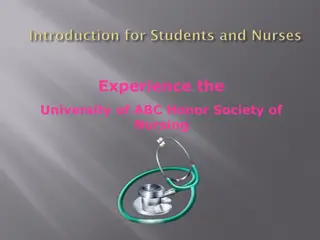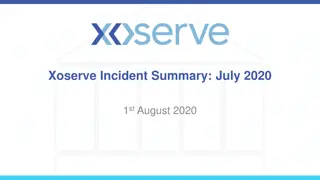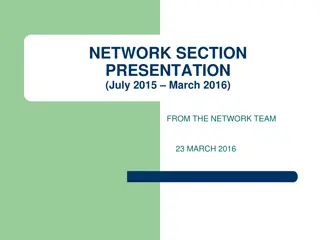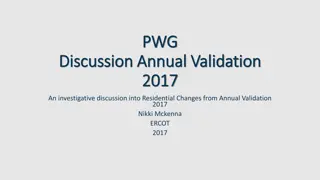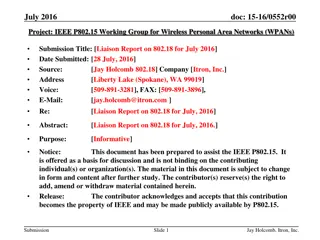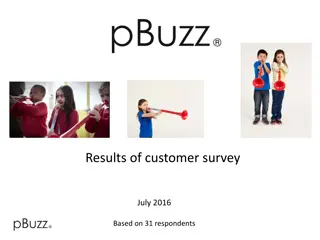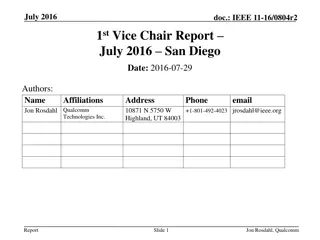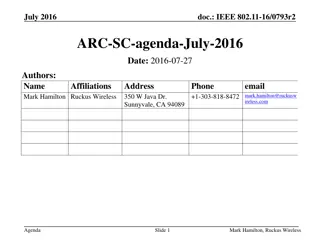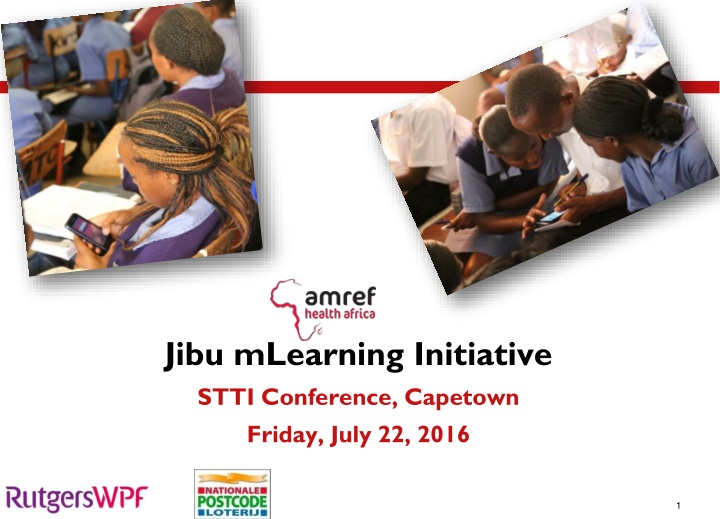
Innovative eLearning Initiative for Healthcare Capacity Building
Discover how the AMREF organization, in collaboration with the Kenya Nursing Council, has pioneered an eLearning program to address nursing shortages in Africa. Through innovative technology-supported learning methods, they have transformed healthcare training and certification processes, leading to improved health outcomes and service efficiency. Learn how this initiative has been evaluated using Kirkpatrick's model, measuring results, behavior, learning, and engagement levels.
Download Presentation

Please find below an Image/Link to download the presentation.
The content on the website is provided AS IS for your information and personal use only. It may not be sold, licensed, or shared on other websites without obtaining consent from the author. If you encounter any issues during the download, it is possible that the publisher has removed the file from their server.
You are allowed to download the files provided on this website for personal or commercial use, subject to the condition that they are used lawfully. All files are the property of their respective owners.
The content on the website is provided AS IS for your information and personal use only. It may not be sold, licensed, or shared on other websites without obtaining consent from the author.
E N D
Presentation Transcript
Jibu mLearning Initiative STTI Conference, Capetown Friday, July 22, 2016 1
Amref is the largest African NGO with reach across 35 African countries and extensive local partnerships Our programme footprint with local presence and partnerships, crucial for creating lasting health change Headquartered in Nairobi, Kenya South Sudan Ethiopia Regional Offices in Africa Uganda 8 offices Somalia Number of projects in Africa >150 projects Kenya People reached across Africa annually >11m people Amref HQ and local programmes Annual budget Amref office and local programmes Mozambique >$91m Amref local programmes Page 2
We have been innovating in capacity building for nearly 60 years using the tools of our time 1950s 60s AMREF is founded using the flying doctors service to deliver healthcare and training in remote areas in Africa 2000 & beyond - Introduction of technology supported learning including telemedicine, eLearning and mLearning 1970s -1980s - Introduction of Radio programmes on National Radio for health workers 1980s -1990s - Introduction of Print-based distance education We Innovate. Replicate successes. and Advocate for change in policy and practice
Together with the Kenya Nursing Council we developed an eLearning initiative to address a critical nursing shortage In 2005, Amref Health Africa teamed with partners and the Kenya Nursing Council to develop a revolutionary eLearning programme that would enable Kenya to train and certify thousands of nurses in just five years. This programme has since been rolled out to nurses in countries across Sub-Saharan Africa, including Tanzania, Uganda, Zambia, Senegal, Malawi and is continuing to grow. We leverage technology to strengthen health systems 4
The eLearning programme has been evaluated using Kirkpatrick s model of evaluation As Level 4: Results Eg Improvements in health outcomes, improved health service efficiency (Key Performance Indicators) Level 3: Behaviour Eg Improvements in health worker performance Performance Institutionalisation (self assessment, supervisor review, observation, patient exit interview) Level 2: Learning Eg Improvements in competence (pre-test vs post-test, self-assessment) Practice Competence ENGAGEMENT Level 1: Reaction Engagement Eg Positive response to training
We saw some great outcomes from the eLearning programme Multi-fold increase in national training capacity for health workers in programme e.g. 4,500 nurses graduated vs 500 if regular programme was used The ability to impart knowledge, skills and competencies using e/mLearning as evidenced by performance at NCK licensure exam. Reduced cost of training, data collection, and access to information through use of technology Acceptance of the use of technology in health by health workers, regulators, training institutions, governments, and the communities
The Kenya eLearning experience resulted in an eLearning model that has been used to replicate the programmme Amref Health Africa offers certificate, diploma and/or undergraduate courses via eLearning in the following countries: Angola Burundi Cameroon Congo Djibouti Ethiopia Ghana Ivory Coast Kenya Lesotho Malawi Namibia Nigeria Senegal South Sudan Sudan Tanzania Uganda Zambia Zanzibar *Programmes implemented in partnership with MoHs in countries in red
as well as some challenges with the use of eLearning Lack of continued access to computers Cost of purchasing internet bundles Limited mobile provider networks in rural areas. which led to the development of the Jibu mLearning programme Click here to view a short overview of the Jibu mLearning initiative
The main objective of the mLearning initiative is to increase access to learning materials for nurses To increase access to the eLearning content for nurses and midwives To provide nurses and midwives with access to additional reference materials to support learning To provide nurses and midwives with access to additional reference materials to support practice To increase opportunities for peer learning for geographically dispersed nurses and midwives
The Jibu Application Workflow Download and install 1 Login Course page 3 Subject page 4 2
Set up of the initiative included a number of key activities Stakeholder engagement Baseline study - determined as-is status of use of mobile devices among nurses, info gaps and needs Application development i. works across multiple operating systems ii. works online and offline iii. integrates quizzes, iv. allows for collection and analysis of statistics 11
Set up of the initiative included a number of key activities Collaborative content development in the areas of need such as post abortion care, contraception, confidentiality, etc using trainers, regulators, MoH Usability testing Enrolment and follow up of users 12
Phase I of the initiative saw a high interest in the use of mLearning among nurses across the 3 countries Gender distribution Kenya: 5,393 Uganda: 5,500 33% Males Females Tanzania: 2, 821 67% Evaluation feedback indicated very high interest in use of mLearning as well as high demand for accredited, credible content. Regulator interest in providing continuing professional development (CPD) via mLearning 13
Phase II supported by Elsevier Foundation will focus on refining the application and approach Refining of the Jibu application to improve the learner experience Work with the Kenya nursing council to deploy the use of mLearning for CPD including content development and capacity building for CPD providers Conduct M&E 14
Thank You! Thank You! ? ? ? For further information: Diana Mukami Website: www.amref.org Email: diana.mukami@amref.org Twitter: @moqami

